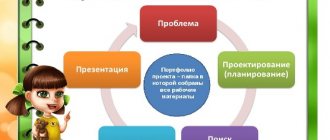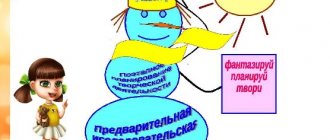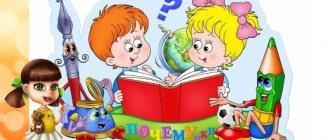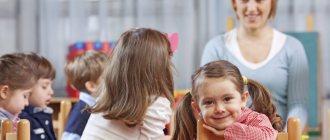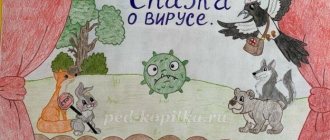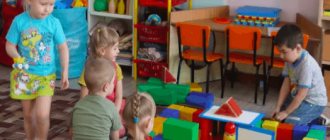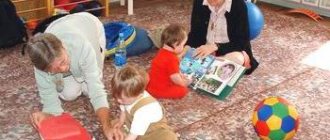Preparatory group. Senior preschool age. Children 6-7 years old
Educational and research project “Wintering Birds” for the preparatory group Educational and research project “Wintering Birds”
.
Relevance of the project : In modern conditions, the problem of environmental education of preschool children is becoming particularly acute and relevant.
It is during the period of preschool childhood that the formation of the human personality occurs,... Information, research, game project for senior preschool age “Virtual trip around the world”
“Virtual trip around the world”
Project passport : By the nature of the contacts of the project : children, parents, educators By duration: long-term By the area of distribution: group room, walking area By the dominant activity of the participants :...
MAGAZINE Preschooler.RF
Short-term creative and educational project “Fairy Tales for Children” for the preparatory group of a preschool educational institutionMunicipal autonomous preschool educational institution kindergarten No. 8 “Planet of Childhood” of a combined type, Moscow region, Reutov
Project manager: teacher of the first qualification category Manastyrnaya I.L.
EXPLANATORY NOTE:
Relevance:
Books are of great importance in a person’s life. A child’s strong interest in reading and reading habit are formed in the family. While the child is small, parents read books to him, and as soon as the baby learns to read on his own, they breathe a sigh of relief. It's no secret that many children grow up without loving a book. Most often, children read comics, sticker magazines, watch videos, play computer games, but the art book remains untouched and loses its importance in the formation of artistic taste. Children and their parents spend most of their free time watching TV or a computer; as a result, the reading process slows down and interest in the book is lost. Reading fiction is of great importance for the all-round development of a child. Their success in learning depends on how children understand the content of what they read, how they can read fluently and expressively, analyze the actions of characters, and draw conclusions.
Once a child begins to become interested in a book, he will find himself in a completely different world - fascinating, colorful, interesting, which will give him many discoveries and finds. The love of reading and books is a love for life, so it is very important to encourage a preschooler’s first successes in reading and storytelling, and to stimulate his interest in words and good works.
A homemade book made by preschoolers will increase interest in fiction, give an understanding of the importance of books in a person’s life and increase children’s self-esteem for their work.
A homemade book is both entertainment and a pastime with a child, as well as learning.
The most fertile soil, with unlimited developmental and educational opportunities, is a fairy tale.
Fairy tales reveal to children the precision and expressiveness of language, showing how rich native speech is in humor, lively and figurative expressions. The amazing power of linguistic creativity of the Russian people has never manifested itself as clearly as in folk tales. Their inherent extraordinary simplicity, brightness, imagery, and ability to repeatedly reproduce the same speech forms and images make it possible to put forward fairy tales as a factor in the development of coherent speech in children.
Hypothesis:
A fairy tale has an advantage over other educational techniques. This is a kind of moral code of the people, their heroics are, although imaginary, but examples of the true behavior of an honest person who knows how to stand up for his dignity.
A fairy tale plays a crucial role in the development of imagination - an ability without which neither the mental activity of a child during preschool and school education, nor any creative activity of an adult is possible. Fairy tales instill interest in reading fiction.
Problem:
Difficulties in children developing coherent speech, the sequence of stories about the events of their lives, the ability to retell literary works, compiling stories based on a picture and a series of pictures, and compiling descriptive stories. Children's creative abilities are poorly developed.
Target:
To cultivate in children a love of books, as well as a love of Russian folk tales; develop in children a sustainable interest in fairy tales as a work of art; revealing children's creative abilities.
Tasks:
- To increase children's interest in independent reading activities.
- To develop the ability to plan the process of making a book - babies.
- Expand children's understanding of fairy tales.
- To develop in children the ability to independently select literature of interest.
- Development of fine motor skills of the hands.
- To develop imaginative thinking, imagination, and creative abilities in children.
- Foster feelings of friendship and collectivism.
- Foster a culture of speech.
- Foster love and respect for books.
- Education of aesthetic taste.
Planned results:
- Increasing the effectiveness of work on the development of coherent speech in children.
- Enriching children's vocabulary.
- Children’s use of elements of Russian folklore, comparisons, metaphors, epithets and other means of figurative expression in their speech.
- The ability to play didactic and printed board games, solve and compose your own riddles, solve crosswords and puzzles based on Russian folk tales.
- Application of acquired knowledge, skills and abilities in creative activities (creating a baby book).
Expected results for the project:
- developing children's interest in Russian folk tales;
- consolidating the ability to apply one’s knowledge in conversation and coherent statements;
- fostering a sense of friendship and collectivism;
- get an emotional response from your work;
- replenishing the book corner with homemade books made with your own hands.
Project implementation stages.
Stage 1 Preparatory
- arouse children's interest in the chosen project topic;
- invite children to bring books with their favorite fairy tales from home to the group;
- examination of illustrations for Russian folk tales “Zayushkina’s Hut” , “The Wolf and the Seven Little Goats” , “Masha and the Bear” , “The Fox with a Rolling Pin” , “Geese-Swans” ;
- design of a book center in a group;
- selection of visual and didactic material.
Stage 2 Main
- Implementation of the project plan with children;
- examination of illustrations of Russian folk tales;
- reading and telling Russian folk tales, talking about the fairy tales read;
- conversation with children “What is a fairy tale?” ;
- conducting board-printed, didactic, verbal games;
- guessing riddles based on fairy tales;
- creation of a card index of Russian folk tales;
- creation of a homemade book and a castle from a fairy tale, illustration of paper puppet fairy tale heroes;
- dramatization of fairy tales.
- Final stage
- Summing up the results of project activities;
- telling fairy tales from your books to children in the preparatory group;
- theatricalization of fairy tales.
| Next > |
Project topics
Integrated learning for preschool is innovative. It is aimed at developing the child’s personal qualities, creative and cognitive abilities. Topics for short-term projects in the preparatory group may be related to pets. For example, the teacher introduces children to the image of a dog in the works of Russian writers and poets, artists and filmmakers. After the theoretical part of the project is presented, preschoolers receive assignments in groups. One team is asked to portray a pet, the second - to write a fairy tale, the third - to come up with riddles related to the dog. At the final stage of the project, each group presents the result of their activities; the final result of the lesson is the creation of a complete picture of man’s best friend.
Such short-term projects in the preparatory group are aimed at the artistic and aesthetic development of the younger generation.
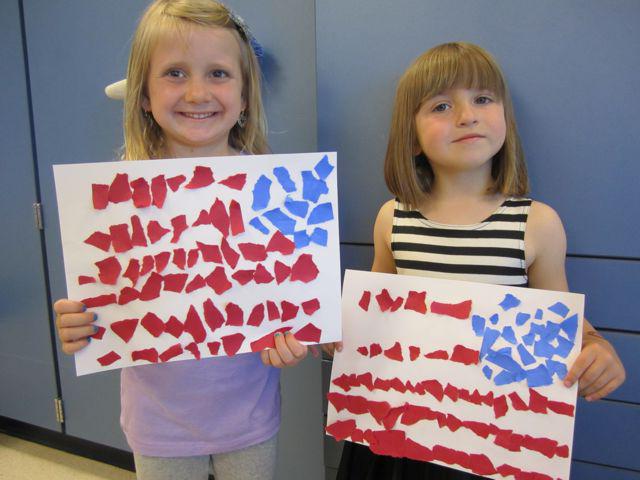
"World of Water"
By implementing this short-term project, children not only become familiar with the most important substance on Earth, but also learn to respect water resources.
The teacher tells his kids that they are 90 percent water. To attract the attention of preschoolers to the topic of the project, he can tell them a fairy tale about a droplet, which during its journey turned into steam, then into ice, then back into a droplet. This way the children will get acquainted with the aggregate states of water and its circulation in nature. There is also a practical part to this project. Kids learn to “turn” water into ice using refrigerators. Aesthetic skills are also required in this activity. Armed with ordinary sheets of white paper and scissors, young designers create snowflakes of unusual shape and size. Together with the teacher, the children attach threads to the finished products, and such homemade decorations are used for New Year trees.
The “World of Water” project involves the involvement of a music worker from a preschool educational institution. He introduces the children to songs that mention water, snow, ice. The result of such cooperation will be learning a song about water, snow, rain. Everyone chooses a song together: the teacher, the music worker, the children.
The purpose of projects in preschool educational institutions
The main goal of any project is to expand the knowledge of preschoolers on a specific topic. Short-term projects in the preparatory group of kindergarten are aimed at developing patriotic qualities in young citizens. From birth, a child becomes an explorer of the world that surrounds him. He sees snow, rain, rainbows for the first time, and encounters joy and grief. At the age of five, little “why girls” try to find answers to numerous questions that interest them. Teachers and parents should help them with this.
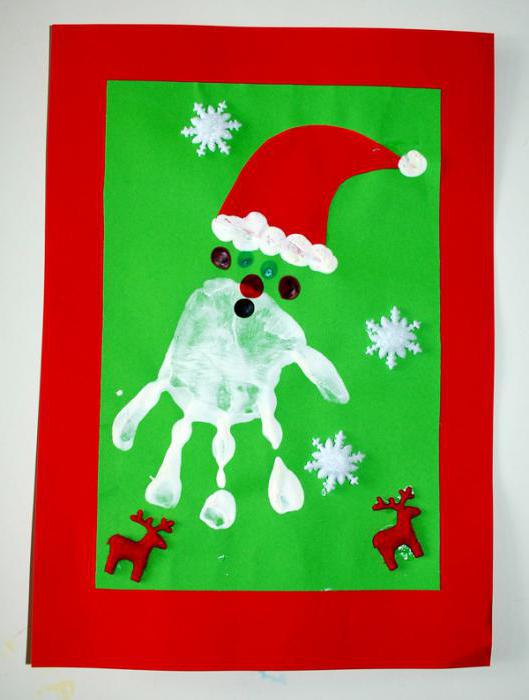
Examples of projects in preschool educational institutions
We suggest considering the short-term project “Winter” in the preparatory group. The main purpose of it is to introduce children to the seasons. First, the teacher tells the children about what is typical for such a time of year as winter. The teacher pays special attention not to the climatic features of a given period, but to the traditions with which this period is so rich. As homework, children are invited to remember New Year's traditions together with their parents and come up with riddles about the New Year. In the second lesson, the guys share the information they managed to find. The teacher introduces the children to “different” Santa Clauses. This can be done using a computer presentation. In addition, preschoolers will learn about the New Year traditions that exist in different countries.
This project is best carried out in November-December. The second homework will be making New Year's toys. But first, the teacher introduces children to the types of Christmas tree decorations and how to make them.
The final lesson for the “Winter” project will be a presentation of New Year’s decorations and hanging them on the Christmas tree. After the Christmas tree is decorated with hand-made toys (with the help of parents), the kids will find themselves in a fairy-tale forest, where treats and fun games await them.
Stages of project activities in preschool educational institutions
The transition of a kindergarten to project technology is carried out according to a certain algorithm. It involves several stages:
- conducting classes using problem situations, a small experiment;
- conducting complex block-thematic classes;
- integration of theoretical and practical knowledge on a specific topic.
A short-term project in a preparatory group on ecology, for example, involves familiarization with natural phenomena, their explanation, and study.
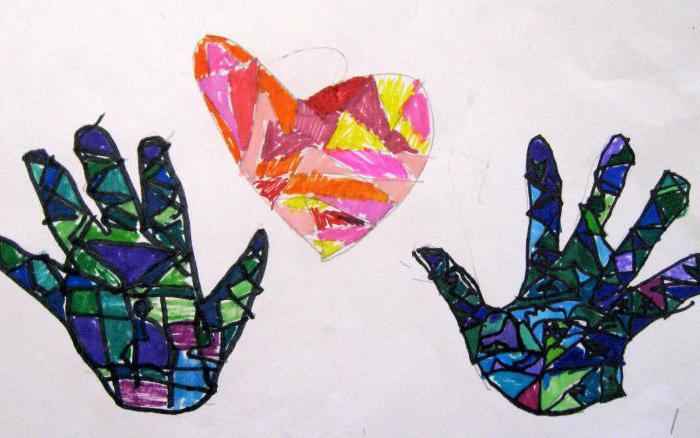
Project methods in kindergarten
A short-term project in the preparatory group for the Federal State Educational Standard can have a variety of topics, taking into account the predisposition of the children. Educators try to use problem-based learning to develop logical thinking in their students. Short-term projects in the preparatory group are aimed at modeling non-standard situations, solving puzzles, and conducting experimental research activities.

